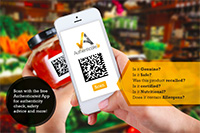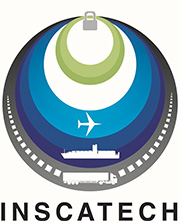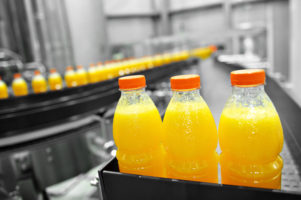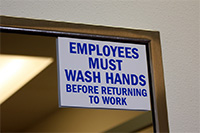How to Improve Brand Protection and Increase Consumer Trust
By Mitchell Weinberg
Let’s be honest, there are two things that drive food companies: profit and branding. Without good branding, there will be no profit. Without profit, there will be no food company.
 Food companies make profits with good branding. Keeping those profits requires brand protection. What kinds of events can hurt or destroy food companies? A food safety or food fraud event that sickens or kills people, depending on where the event occurs, can deal a damaging or fatal blow to a food company. When it comes to protecting brands against food safety and food fraud, totally different approaches are required.
Food companies make profits with good branding. Keeping those profits requires brand protection. What kinds of events can hurt or destroy food companies? A food safety or food fraud event that sickens or kills people, depending on where the event occurs, can deal a damaging or fatal blow to a food company. When it comes to protecting brands against food safety and food fraud, totally different approaches are required.
Food safety is based in science and established operational protocols. The solutions for preventing food borne illness from known pathogens are well established. Technological improvements in the detection of salmonella and e-coli are rapidly developing, and the audit process and food safety certifications are well established and sound. Where there are food safety problems, an almost daily event, consumers are sensitized to the manner in which they occur and how they are dealt with. While food safety problems are highly predictable, food fraud is almost entirely unpredictable.
When it comes to brand protection from food fraud, however, an entirely different approach is required. Consumers in the west are not really sensitized to food fraud nor are they aware of how profoundly it can affect them. Broadly speaking, the approach taken to protect a brand against food fraud is a forensic approach. While food safety problems are highly predictable, food fraud is almost entirely unpredictable. The food industry is inherently secretive and mistrusting. New approaches are regarded with skepticism and guardedness. After years of investigative research in the area of food fraud, companies have yet to realize the magnitude of its impact in the spectrum of food safety.
This is largely because food fraud was assigned by default to food safety professionals. In the case of food fraud, brand protection, risk management, security and liability, food professionals need to take a more active role in combatting it.

Addressing food fraud requires a combination of intelligence and technology. Food fraud intelligence is hard to gather, but once companies have it, they can make decisions which dramatically affect the bottom lines of profit and brand protection. INSCATECH, a company operating out of New York, USA, specializes in the gathering of intelligence. Through a specially trained global network of undercover intelligence-gathering operatives, INSCATECH discreetly gathers invaluable information of all kinds relating to the food industry. Food companies that have used our services are often surprised at the depth and accuracy of the intelligence that is gathered. Much like countries that use intelligence to guide their policies and decisions, food companies now have an ability to tap into intelligence to maintain greater control of their (global) supply chains, which ultimately results in higher profits and enhanced brand protection.
Intelligence, or in its more basic form, information, can be used to protect brands from exposure to both food fraud and food safety issues. A new software App called Authenticateit is leading the way by providing greater transparency to both consumers and brand owners alike. By simply downloading the smartphone app, consumers can access a plethora of information before they purchase a product to verify its authenticity, and receive recall alerts as well as nutritional and marketing information. Brand owners who adopt this type of technology understand the value of providing consumers with transparent information from farm to fork.
Authenticateit assigns a unique GS1 Datamatrix code to every single food item. Customers who wish to know whether the product is made by the branded producer, merely have to scan the bar code or QR GS1 Datamatrix code on the package to know whether the product is real or counterfeit. This tool is also fully integrated with GS1 and World Customs.
The Authenticateit tool is more than just an authentication tool: in the event of a recall, consumers can be quickly notified of problems with their product. When customers have access to tools such as these these they begin to trust a brand even more, which can increase a brand’s profit margins.
In a highly competitive and compromised marketplace, like the food industry, the battle to protect a brand and consumers is challenging enough, but those who are ready to adopt a more transparent methodology with the use of innovative techniques and sophisticated real time intelligence stand to gain increased profits because they have a brand consumers trust.
About the Author
Mitchell Weinberg is CEO of INSCATECH, a company that provides forensically-based undercover investigations, vulnerability assessments, supplier qualification examinations, validated supply chain mapping, and food fraud vulnerability control programs. To learn more about Authenticate-it, please click here.
To have more articles like this emailed to your inbox, become a GFSR Member today!

-
 FeaturedRisk management
The Cost of a Breach: What a Cyberattack Could Mean for Food Safety Recalls
FeaturedRisk management
The Cost of a Breach: What a Cyberattack Could Mean for Food Safety Recalls
-
 FeaturedRisk management
Securing the Food Chain: How ISO/IEC 27001 Strengthens Cybersecurity
FeaturedRisk management
Securing the Food Chain: How ISO/IEC 27001 Strengthens Cybersecurity
-
 FeaturedRisk management
Revolutionizing Food Safety Training: Breaking Out of the “Check-the-Box” Mentality
FeaturedRisk management
Revolutionizing Food Safety Training: Breaking Out of the “Check-the-Box” Mentality
-
 GFSI Standards
GFSI 2025: Building Trust, Tech-Forward Solutions, and Global Unity in Food Safety
GFSI Standards
GFSI 2025: Building Trust, Tech-Forward Solutions, and Global Unity in Food Safety
-
 FeaturedFood Safety
Integrated Pest Management: Strategies to Protect Your Brand’s Reputation
FeaturedFood Safety
Integrated Pest Management: Strategies to Protect Your Brand’s Reputation
-
 FeaturedFood Safety Culture & Training
No Open Door Policy: Challenges That Impact Pest Control in Food Processing Plants
FeaturedFood Safety Culture & Training
No Open Door Policy: Challenges That Impact Pest Control in Food Processing Plants



